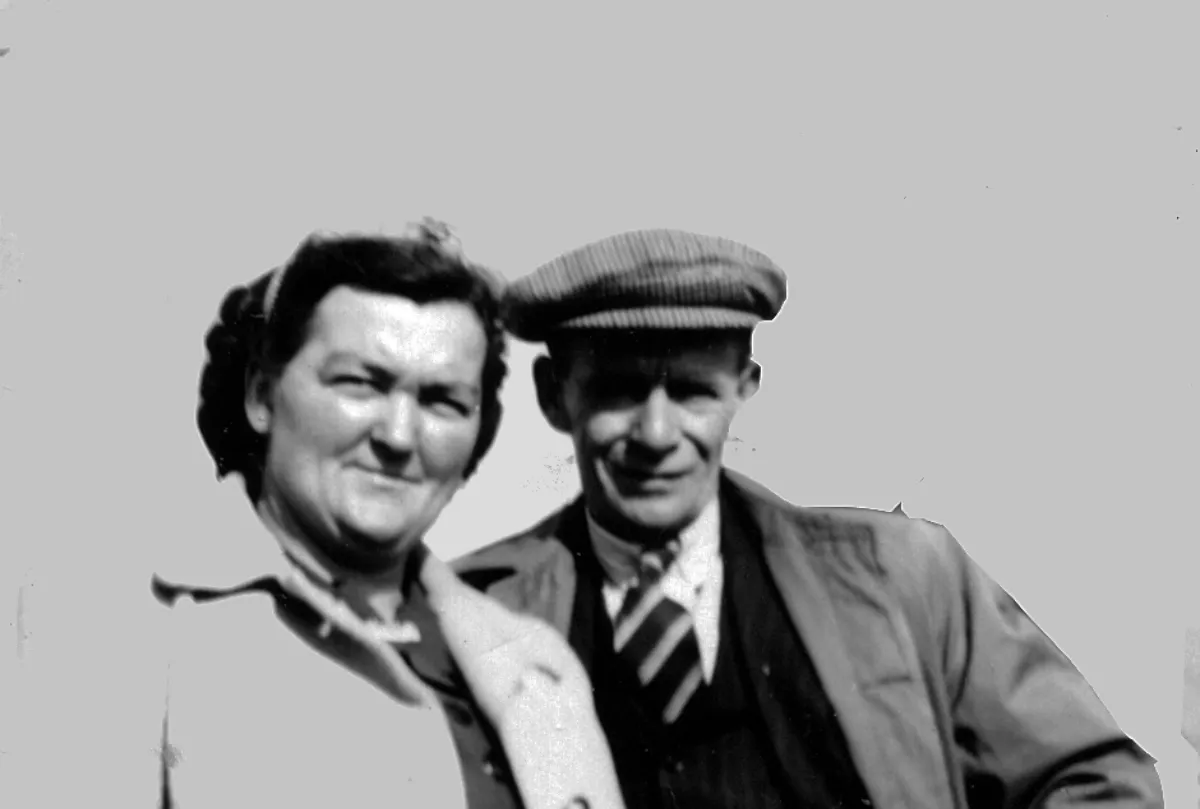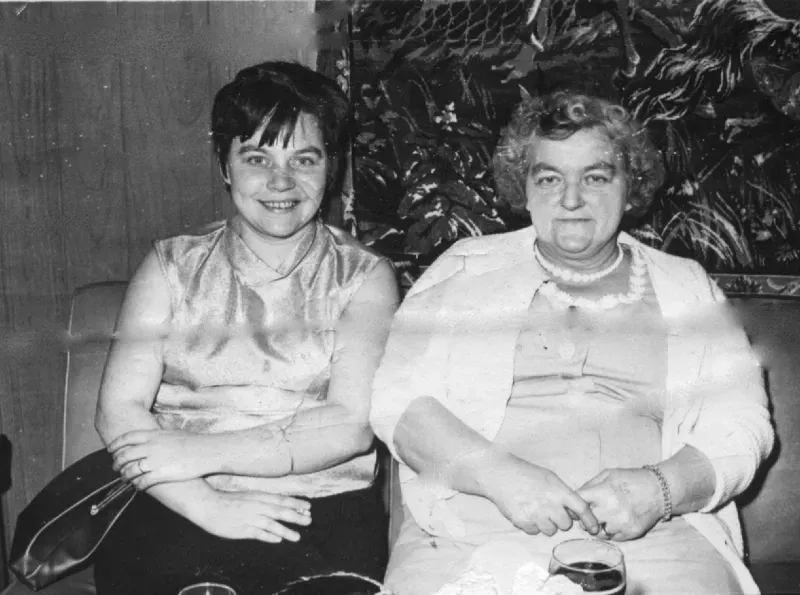Nan - The Woman Who Raised Me

From my earliest days in the cramped, noisy house on Wern Fawr Road to my visits to her new home on Mayhill, my Nan was the constant, gentle centre of my world. I spent the first eight years of my life in the Port Tennant area of Swansea, in the same house where I was born. We shared that small home with my maternal grandparents, Violet and Herbert Davies. Of all the people who shaped my childhood, it was my Nan I loved most dearly.
For my first six or seven months, I lived with my grandmother while my parents were out in the countryside, where my father had found work as a farm labourer. While I'm no expert on attachment theory, I do know this: I felt far closer to my Nan than I ever did to my mother. Those early months may have been the foundation of that bond.
It didn't help that for the first six years of my life, my mother was in a constant state of pregnancy, producing new babies with remarkable frequency. Between the demands of carrying, birthing, and caring for infants, she had little time or energy left for me and I, being a typical egotistical child, probably thought I deserved more attention than I was getting.
But beyond the circumstances, there was a fundamental difference in the quality of care I received from each woman.

My mother and grandmother having a night out at a pub. Probably taken in the 1970s
The Boils
When I was around five or six, I was prone to boils, mostly on my arms. These were undoubtedly the result of all the scratches and scrapes I collected while rolling around in the dirt, dodging imaginary machine gun fire from German bunkers during my elaborate war games.
What follows is a bit graphic, so feel free to skip ahead if you have a weak stomach.
When a boil had risen and looked like a yellow-topped volcano ready to erupt, my parents' approach was brutally efficient: squeeze it until it burst, give it a quick wash, and slap a plaster on it if one was available. If not, the wound was left "to dry out in the open air," as my father called it. The whole ordeal was quite painful and usually left me in tears.
My Nan had a different approach entirely. She would sit me down beside her at the kitchen table with a bowl of hot water, take a clean flannel, dip it in the warm water, and place it gently on the boil. She called this "drawing it out." She would repeat this process patiently until the skin softened and the pus oozed out naturally—usually a painless operation. Then she'd place a bit of gauze over the area and bandage it properly to my arm.
I thought the bandage was wonderfully heroic, so for the few days until it got filthy and fell off, I would play the wounded soldier during my endless war and space games over the Bank.
The Croup
I was also susceptible to episodes of croup—a throat infection that closes the upper airway, making it difficult to breathe and causing a distinctive barking cough. We didn't have vaporizers or humidifiers in those days, but we did have folk medicine passed down through generations.
Once again, Nan came to the rescue with her patent brew: blackcurrant jam, hot water, and vinegar. She told me years later that the vinegar was the active ingredient; the blackcurrant jam was only there to make the concoction palatable. The theory was that the vinegar would settle in the stomach, and its fumes would rise to open the throat.
The medical establishment might debunk the use of vinegar for respiratory ailments, but I can tell you with absolute certainty that it worked. My throat would feel less constricted, and while I might still cough occasionally, that frightening barking sound would disappear.
The Difference
My Nan was the kindest, gentlest person I have ever known. She would comfort me when I fell and let me curl up beside her during her afternoon naps. She had infinite patience for my questions and would carefully explain things to me, like why poking the cat with a stick wasn't the brilliant idea I thought it was. She never hit me; a sharp word was all it took to bring me back in line.
With my mother, there was none of that tenderness. I don't think she had the time, energy, or perhaps even the inclination to develop the skills of nurturing motherhood. She was surviving, not thriving, under the weight of constant childbearing and the demands of our crowded household.
I loved my Nan with a fierce devotion, and I never wanted to disappoint her. But when I was eleven or twelve, I did exactly that. It's an episode that fills me with such shame that I'm not sure I'll ever be able to write about it fully. It involved a betrayal of trust and an act of theft that changed something between us forever.
Even now, decades later, the memory of letting her down remains one of my deepest regrets. She deserved so much better from the boy she had loved so unconditionally.
In those early years, Nan wasn't just my grandmother, she was my sanctuary, my healer, my gentle guide through childhood's rough patches. She showed me what love looked like when it was freely given, patiently offered, and never withdrawn as punishment. In every way that mattered, she was the woman who truly raised me.